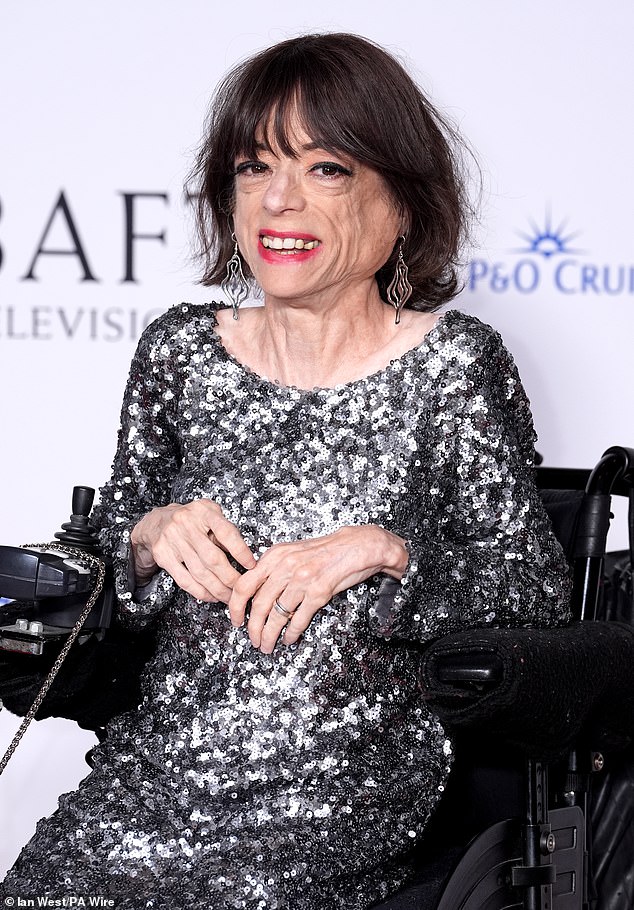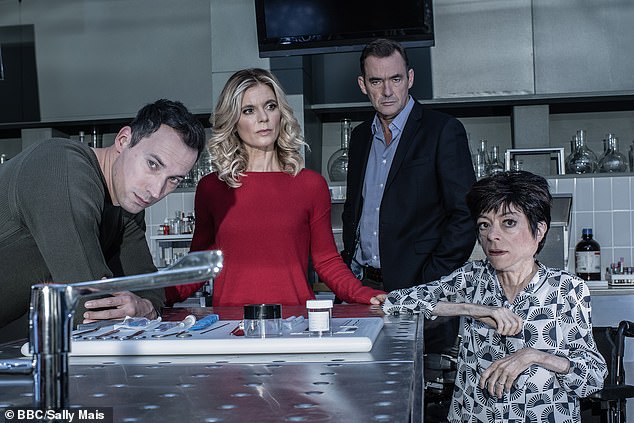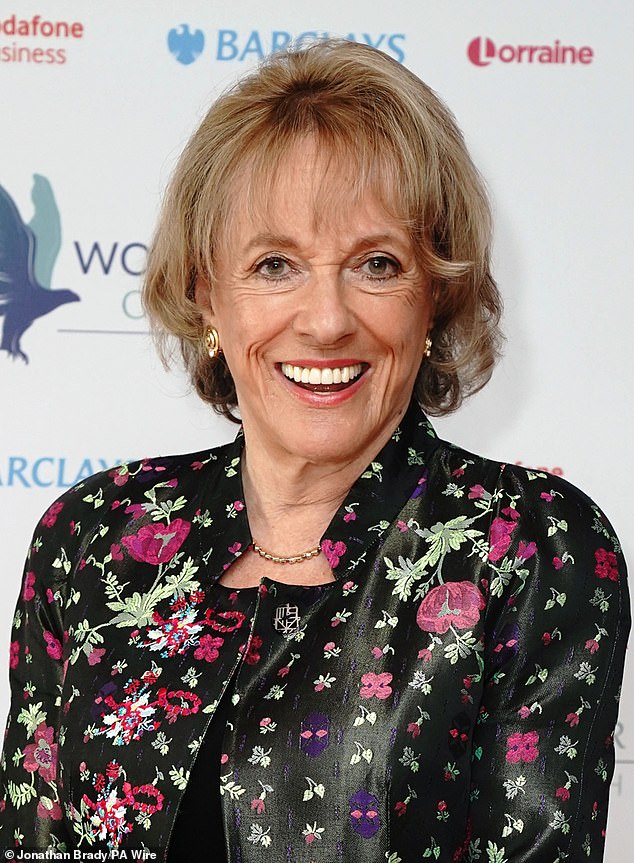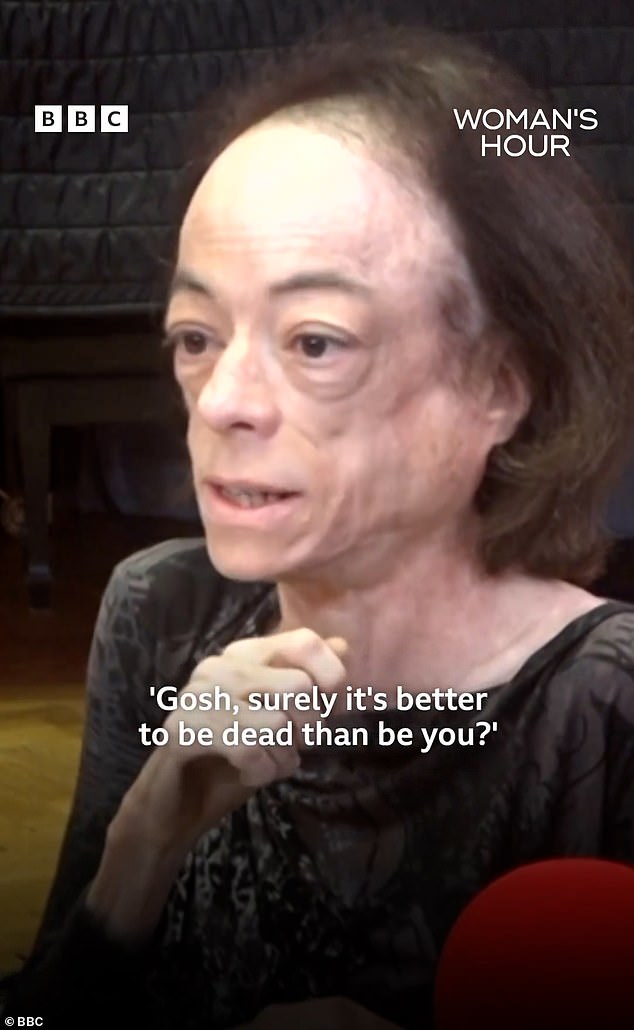Silent Witness actress Liz Carr has said that “as long as there is inequality, it is not safe to legalise” assisted suicide in the UK. after revealing how disabled people are told ‘surely it’s better to be dead than to be you?’.
The actress and disability rights advocate fronts a new BBC documentary titled Better off Dead? airing Tuesday, which explores the legalization of assisted dying and its potential effect on vulnerable or disabled people.
Laws in the UK currently prevent people from asking for medical help in dying and Liz has been an outspoken opponent of assisted dying for over a decade.
Liz suffers from a rare genetic condition, arthrogryposis multiplex congenita, a condition that affects the joints and muscles, and has been wheelchair-bound after falling ill at the age of seven.
Speaking on BBC Radio 4’s Woman’s Hour program on Thursday, she claimed that “as long as there is inequality, it is not safe to legalize” assisted suicide, adding: “No amount of safeguards will stop us from making mistakes, abuses and coercion, that’s what believe”. ‘
Silent Witness actress Liz Carr has claimed that “as long as there is inequality, it is not safe to legalize” assisted suicide in the UK, after revealing how disabled people are told “surely it’s better to be dead than to be you.” same”.
She told the programme: ‘Every day disabled people are faced with lower expectations and people actually say to their faces: “God, surely it’s better to be dead than to be you?”
‘That happen. It is shocking. So I wanted that to be the starting point and then let’s look at why that is and how it leads me to be afraid of legalizing assisted suicide.’
The British actress added that ‘of course we don’t want (a person at the end of their life) to suffer.’
She continued: ‘TThe problem is that many disabled people actually suffer. But what they suffer are the barriers and obstacles, the fact of having to fight for support, the fact that there is no social care, the fact of attitudes, the lack of access to so many things.
‘You know, we suffer. So do not legalize ending that suffering through assisted suicide, that is the fear.”
The actress revealed how people who know her as a famous face treat her more positively than those who don’t recognize her.
She explained: “From my point of view, as someone who lives in a world where, you know, if they recognize me on the street, people get giddy and excited and it’s wonderful.”
“If they don’t recognize me on the street, then they ignore me or sometimes they look at me like I’m just a problem and I’m a problem and, ‘Oh God, do we have to remove the ramp?’ Phew.” I’m just a pain.
“So that difference shows me that a lot of times I think disabled people are just tolerated and I think the same goes for sick people and older people, and I think all of those groups would be affected by these laws.
“As long as that inequality exists, it’s not safe to legalize… no amount of safeguards will stop us from making mistakes, abuses and coercion, that’s what I believe.”

The actress and disability rights advocate fronts a new BBC documentary titled Better off Dead? It will air on Tuesday and explores the legalization of assisted dying and its potential effect on vulnerable or disabled people.

The 52-year-old actress is known for playing forensic examiner Clarissa Mullery in BBC crime drama Silent Witness (pictured).
The 52-year-old actress is known for playing forensic examiner Clarissa Mullery in the BBC crime drama Silent Witness.
He also joined the second season of Netflix dark fantasy series The Witcher, starring Superman actor Henry Cavill, as well as BBC NHS comedy drama This Is Going To Hurt and Amazon supernatural series Good. Omens with David Tennant and Michael Sheen.
Liz won a gong at the 2022 Olivier Awards for her supporting role as polio survivor and physician Dr. Emma Brookner in The Normal Heart, a play about the HIV/AIDS epidemic in the 1980s.
Promoting her documentary in the Big Issue, Liz also spoke about how she was “told all the time that she wouldn’t live to be old, and I believed it.”
She said: ‘I thought I was going to die when I was a teenager. I thought she was going to die when she was 20 years old.
“Then I thought I would die at 30, so I would love to tell my younger self that she won’t die young, because I’ve wasted so much of my life worrying unnecessarily. And there are a lot of things we need to worry about.
Liz said her life “changed forever” when she met a woman called Sue during a course at a nursing home in Ross-on-Wye, Herefordshire.
‘She had everything I wanted: she lived alone, she had a partner, she worked, she was fun. “Sue took me under her wing,” Liz said.
‘Before the course I thought that I can’t get on the bus because I can’t walk and that’s my problem. They said, what if all buses were accessible?
And it was like a heavenly moment. The lightbulb moment of my life. I don’t have to do everything on my own to be worthy and have a good life… That’s where activism started for me.’
He also revealed how painful it is to think that his younger self “didn’t see a future” after his life-changing disability diagnosis.
“Because of my appearance, most people will think I was born disabled, but I wasn’t, so I understand what it means to have a disability,” she said in the magazine’s “Letter to My Younger Self.”
He explained how his mother recently found an entry in his diary that detailed how his younger self “wanted to die” when he was 12 years old.
‘During lockdown, my mother called most nights… She would go through old diaries and call with the most heartbreaking parts.
‘It would be: ‘What did you eat for your tea? Did you know you wanted to die when you were 12?
‘I knew I was miserable, but to say I’d rather be dead? It hurts me to hear that my younger self didn’t see a future.
‘I would love to tell him that you will fall in love, have friends, travel the world and do a job that people can only dream of. She wouldn’t have believed any of that.
Liz’s full ‘Letter to My Younger Self’ can be read in this week’s big issue, out now. Find your local vendor to purchase a copy or subscribe online at bigissue.com.
The topic of assisted dying is never far from being in the news. In recent months, a series of high-profile cases in the Netherlands have put him in the spotlight.
There, two young women who were physically healthy, but suffering from mental health problems, announced that they would undergo assisted death.
Jolanda Fun and Zoraya ter Beek said life had become unbearable due to their mental health problems and they had chosen to end their lives legally in the Netherlands.
Figures show that 138 people suffering from mental health problems were euthanized in 2023, representing 1.5 percent of euthanasia cases in the Netherlands that year.
Meanwhile, in the UK, Dame Esther Rantzen led a chorus of dismay after an MPs’ report on assisted dying produced no clear conclusions or proposals in February.
The inquiry, carried out by the Health and Social Care Committee, was set up to provide “a basis for discussion” about whether the law should be changed.
But the committee stopped short of calling a debate in the House of Commons, which would have allowed MPs to discuss their differences over existing legislation before taking a vote.

In the UK, Dame Esther Rantzen (pictured) led a chorus of dismay after an MPs’ report on assisted dying produced no clear conclusions or proposals in February.
Instead, it recommended that the Government should consider how to respond if steps are taken to make assisted dying the law in some parts of the UK.
Dame Esther, who suffers from stage four lung cancer and has enrolled in the Dignitas assisted dying clinic in Switzerland, called the report “deeply disappointing.”
She said of the February report: ‘Many of us feel that it is time for this country to catch up with best practice abroad and the only way to achieve this is through a proper debate in Parliament with a free vote at the final.
‘I am deeply disappointed that this report, which many of us have been waiting for, does not contain that recommendation. I’m afraid in many ways it was a wasted opportunity.
Euthanasia, or medically assisted dying, is currently illegal in both the United Kingdom and the rest of the British Isles, and any doctor or person who performs euthanasia can currently face prosecution for manslaughter or murder.
Even helping a terminally ill person to take their own life, called assisted suicide, is a crime in England, Wales and Northern Ireland and is punishable by up to 14 years in prison.
While there is no specific law on assisted suicide in Scotland, helping someone to end their own life could give rise to a manslaughter prosecution in circumstances where a court determines that a person’s death was not entirely voluntary.


